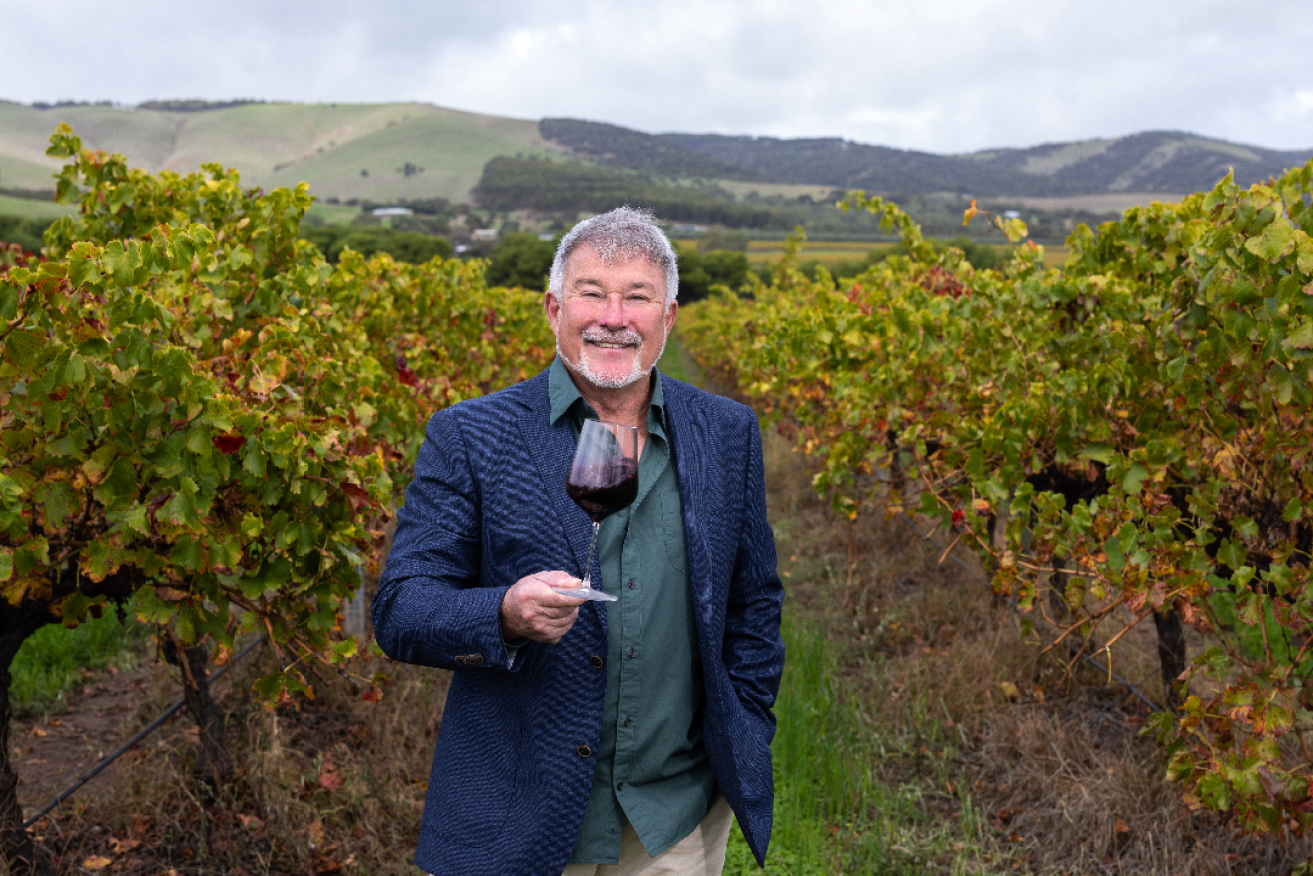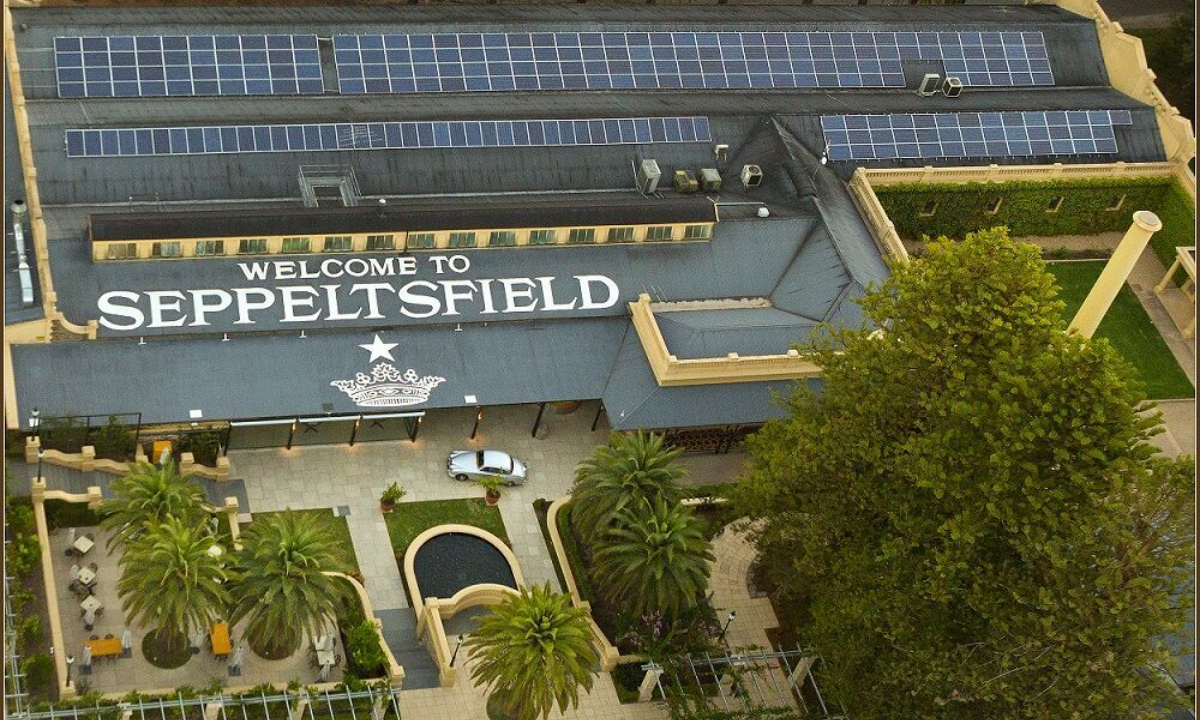SA wine mogul Warren Randall aims for China reboot after tariff wall crumbles
The owner of some of South Australia’s top wine brands is eager to get his bottles back on the tables of Chinese consumers, but there’s serious competition from other nations which moved in on shelf space vacated by the Australian lockout.


Warren Randall. Photo: Seppeltsfield Wines.
Before China introduced crushing tariffs on Australian wine exports four years ago, Warren Randall was savouring the fruits of success in the lucrative Asian market.
He was selling premium bulk red wine to Chinese winemakers, Seppeltsfield was doing well there and he’d just found a niche in the market via his “entry-level” One Pound Per Acre brand acquired in January 2020 – just months before the tariffs were introduced.
But overnight, the $1.1 billion export market was wiped out with tariffs of more than 200 per cent were slapped on Australian wines after China’s relationships soured with the former Morrison Government.
Now, the former number one overseas buyer is finally set to reopen to Australian winemakers after China’s Commerce Ministry revealed the tariffs were “no longer necessary”.
It means wine businesses like Randall’s can resume trading with partners in China.
Speaking to InDaily, Randall said he felt “total relief” when the “questionable” sanctions were lifted last week.
It capped off a brutal few years for South Australian wine businesses, which were particularly hit hard considering the state produces around half of the total volume of premium wine made in Australia.
“From the Australian wine industry’s point of view, China was the first billion-dollar export market ever, so it was an incredibly significant market to us, and it was cut off overnight,” Randall said.
“We were selling premium bulk red wine to Chinese winemakers and we had the Seppeltsfield brand and One Pound Per Acre – our sort of entry-level brand – into China. One Pound Per Acre was doing incredibly well, it was one of the fastest-growing Australian export brands ever.
“There was no tariff on bulk wine, but the Chinese government made it very clear that no Australian wine would be allowed through Chinese ports… they just would not clear it. We had two containers of Tawny Port sitting on the port for 18 months – and thank god it was Tawny Port – but a lot of other winemakers either bought their wine back or left it there to deteriorate.”

Photo: Seppeltsfield Wines.
Randall said he looked to other countries like Canada to cover some of the lost exports, and said his latest acquisition Gemtree Wines has been performing well in Sweden. But China was the market at the top of his mind.
Randall has made dozens of trips to China and on Saturday will leave on his 41st, to meet with distribution partners eager to resume trade with Australian businesses.
“My 40th trip to China was in May last year, and there was tremendous excitement and enthusiasm for Australian wine,” he said, “but a few things have changed, of course”.
“What the Chinese government did was give all of our competitors a free kick in front of goal when they applied the tariffs. Chile, Spain, France, Italy and South Africa have made significant moves into China, and they are now commanding Australia’s old shelf space in retail and they will be very keen to maintain that shelf space.
“We will find ourselves in a very competitive environment. Our competitors on an international level are not going to give up their shelf space easily. I think one brand will go back to pre-tariff sales very quickly: Penfolds. I think all other Australian brands are going to have to fight hard to get our shelf space back from those five major competitors.
“We may find ourselves in a price war to try and maintain market share, or we’re trying to steal back market share. We were hamstrung four years ago, so it’s not going to be easy. I don’t see it as a panacea for the Australian wine industry, but it gives everyone hope again.”
In saying that, Randall knows first-hand that Chinese consumers love Australian wine and hold it in high regard.
“They love the flavour profile of Australian wine and I think in general they like Australian people as well,” he said.
“I always get on very well with Chinese people, we do business together, so hopefully that is all still there.
“But there is one proviso: they are drinking less than they were pre-tariffs, and that may be because they were locked up for a long time with COVID and they’re still getting back into what you’d call their normal lifestyle.
“We’ll just have to wait and see what happens there, because I think when Australian wine comes back on and starts hitting the shelves, we may see an increase in wine consumption again in China.”
Randall will jet off to China with 90-odd bottles of wine in his “very heavy luggage”. He’ll be hitting up the major Chinese wine-growing regions from Inner Mongolia through to the Shandong Peninsula.
“We tend to go to the wine-making districts and taste the wine with the winemakers,” he said.
“I’ll meet Gemtree’s previous six distributors for the first time – I’ve only owned the brand for six months – so we’ll talk about the new ownership and plans for the future which is to grow Gemtree to twice the size it was and hopefully that means doubling the sales of Gemtree in China.”
Other strategies for the rest of his wine portfolio include a focus on getting South Australian luxury bulk red wine back into China.
He’ll also push to get One Pound Per Acre’s exports back online and will start exporting McLaren Vale label Penny’s Hill.
Of course, Randall’s flagship brand Seppeltsfield will be pushed too: “Basically, push the reset and restart button”.
But he’ll be careful, noting that one lesson Australian winemakers can take away from the Chinese tariffs experience was not to put all eggs in one basket.
“China was a new market – a massive market – and it was such an exciting market to be in. They loved Australian winemakers and they loved Australian wine,” he said.
“Everyone said be careful – one of the threats was political tension – but I didn’t feel one iota of political tension when I was in China for those visits. They loved our wine and they bought it and they paid for it.
“They’re a great export market and I look forward to getting there on Saturday and having plenty of drinks and doing some business.”




